Emus are one of the most expensive birds that are endemic to Australia. A pair can cost up to $60,000, while a fertile Emu egg is around $100 each.
So, how much does an emu cost? Emus are expensive to raise. A fertile egg can cost around $100, while a three to four months chick can be sold at approximately $3,000 to $4,000 each. Furthermore, you can buy a pair for $50,000, depending on the historical fertile eggs number the pair produced per mating season.
In this article, you’ll get to know the physical attributes of Emus, the cost per yearling, and the space they need to live comfortably. Moreover, you’ll also get extra information on the legalities in raising an emu and if it’s a really profitable business.
What Are Emus? What Do They Look Like?
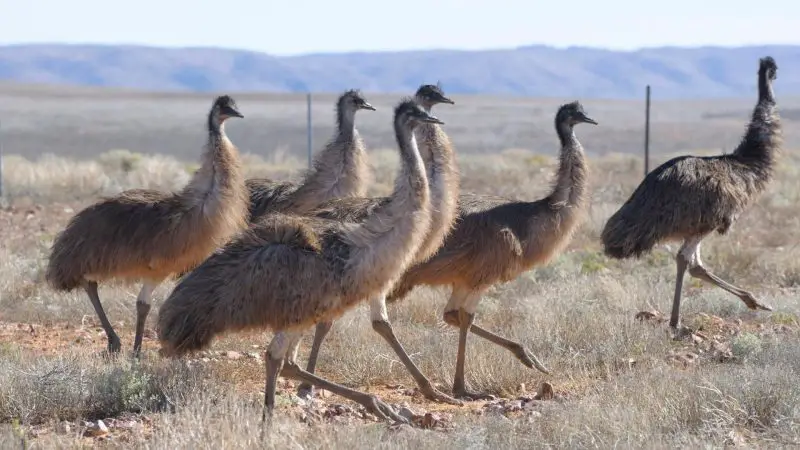
Emus are the second-largest birds, next to ostrich. They’re native to Australia and can be recognized with their fuzzy, gray-brown to black plumage.
They also have bare skin near their face and neck with a distinctive blue-black color. On the other hand, emu chicks are gray in color with either black or brown stripes, allowing them to camouflage from predators.
Furthermore, their vestigial ‘winglets’ are hidden under their shaggy plumage, that’s only 20cm long.
How Many Years Do Emus Live?
Emus can live up to 5-10 years in the wild and 35 years in captivity.
How Much Does a Full Grown Emu Cost?
For full-grown, proven breeding pairs, you can get them for as low as $8,000 to as high as $50,000 per pair, depending on the number of eggs they can produce per mating season.
Is It Legal to Own an Emu?
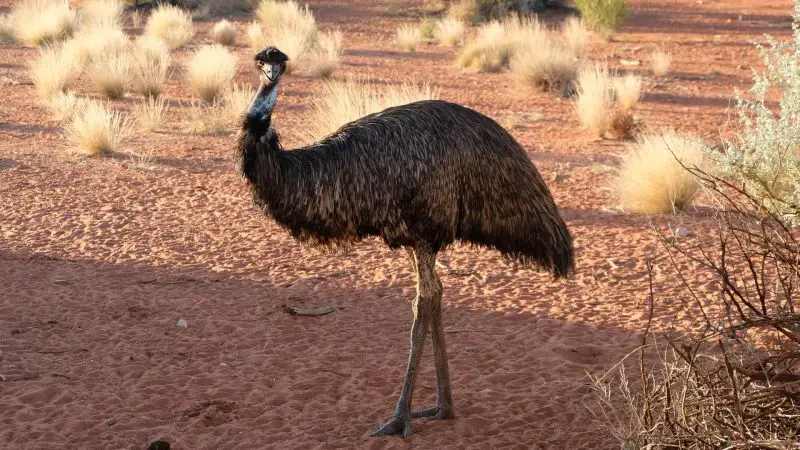
In the U.S, you can legally raise an emu without any permits.
What’s the Price of an Emu Egg?
A fertile emu egg can cost around $100, but some propose $20 per egg. To get the best emu eggs, it’s best to buy from established emu breeders, recommended breeders, or purchase them from reputable websites and social media pages.
How Much Does a Yearling of Emu Cost?
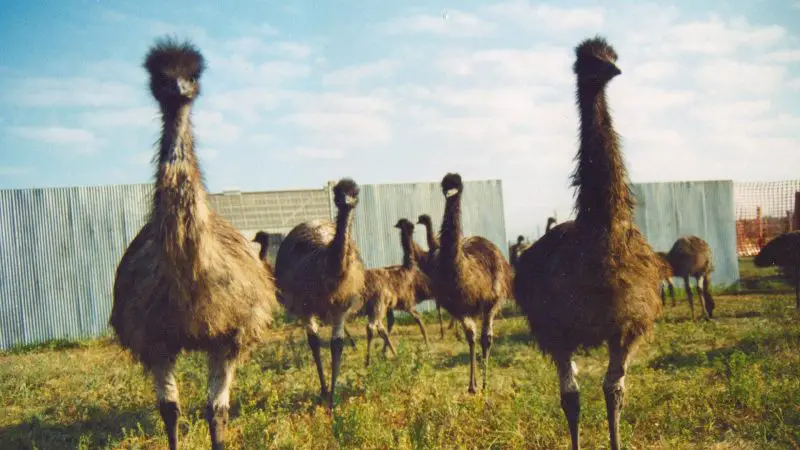
Buying the yearling of emus has many benefits over young chicks in terms of insurability, size, and conformation. A pair of emu yearlings cost approximately $11,000 to $19,000.
This means a single emu yearling can cost around $5,500 to $9,500, depending on where you bought it from. Some may give higher prices, so always do your research and compare the prices before buying one.
How Much Does a Pair of Proven Breeding Emus Cost?
The proven breeding couple of emus cost at least $8,000 to $30,000, based on the past fertile eggs’ count the couple has brought forth every mating season. A proven breeding pair can produce around thirty to fifty fertile eggs each mating season.
How Much Space Does an Emu Need?
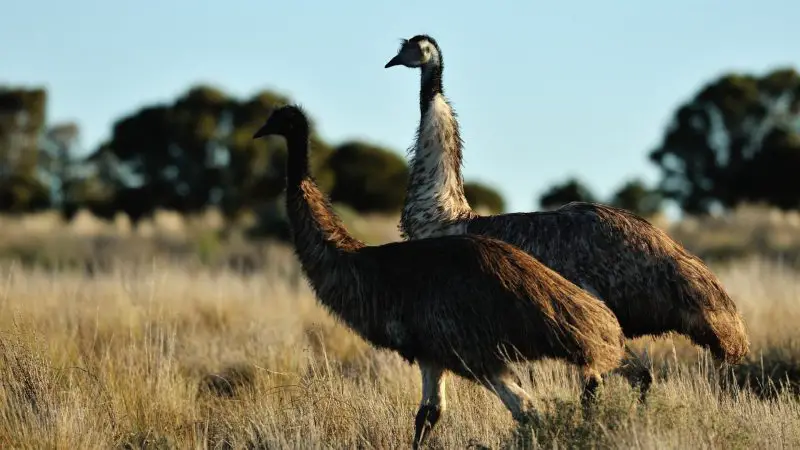
Emus are active birds and require a wide living space as they need enough space to run. A pair of emu needs approximately 30×100 ft. pen per pair space.
These large birds are energetic jumpers, so fencing them is crucial to managing them. They’ll also need shelter and feed pens.
Is Emu Farming Really Profitable?
Emu farming is an unconventional profitable industry that generates profit in various emu products, such as emu oil, red meat, and fine leather. All of these items collectively add up a lot in earnings.
In fact, according to research gate, if you’ve bought young chicks and raised them to adulthood, then a pair of proven emu breeding can be marketed at $8,000 to $30,000.
Furthermore, you can sell an emu for slaughtering and will get paid around $500 to $800 per grown-up animal. A single breeding pair can yield more meat and leather than a pair of cow breeding.
An adult emu also produces approximately seven to eight liters of fine oil used in creams, fragrances, and pharmaceuticals. You can also sell the leathers and feathers of emu, which adds up a lot to the major value in the revenue of emu farming.
Emu Chick Prices
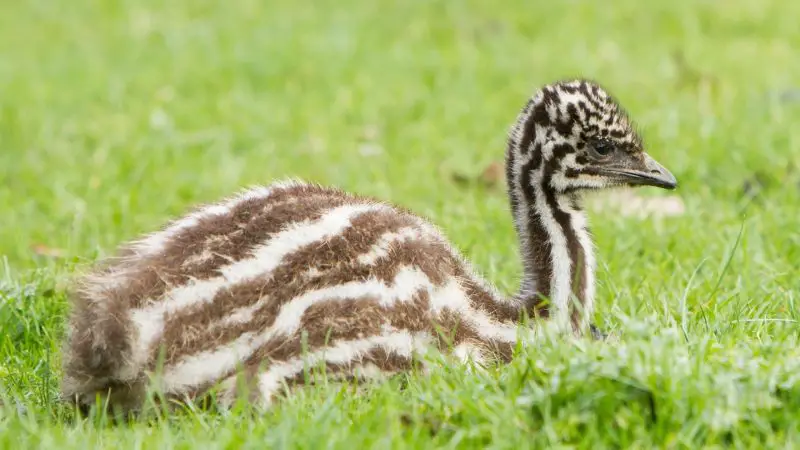
An emu chick’s cost varies depending on its maturity, breeding qualities, and origin. A chick from a good emu breed can cost around $1,000 and higher.
Fencing Cost for Emu
A fence of at least six-foot is generally advised for keeping an emu well. It must ideally be of good quality and crafted from woven wire or chain links.
The price to establish the emu fence relies on the covered area. Fence installation from professionals costs approximately $8 to $17 per foot.
Nutritional Value of Emu Meat
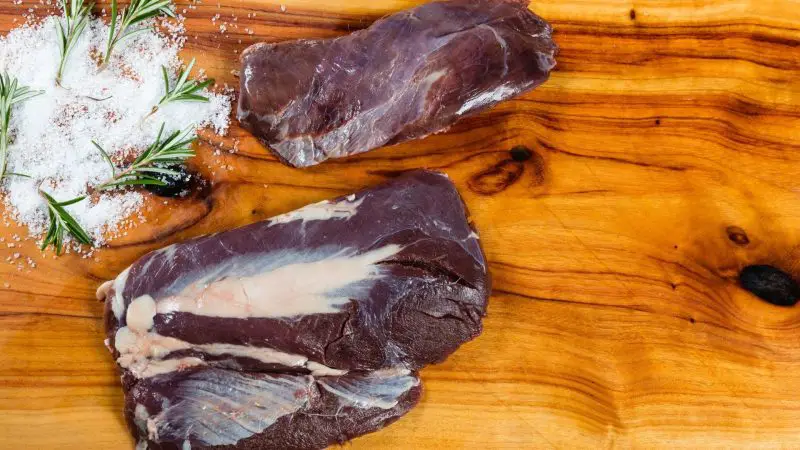
The meat of emu contains far better nutritional value than beef, pork meat, and chicken regarding cholesterol amounts, fats, and proteins. Its red meat also has a promising future in the industry because of its low fats and cholesterols content.
The red meat of emu contains:
- Vitamin E
- High proteins
- Low cholesterols
- Vitamin C
- Iron
- Lesser fat content
This meat is typically lean, adding it to the healthy protein choices list by AHA or American Heart Association.
Emu Ranching and Revenue
Emu is a ratite family member, originated in Australia, and is rarely observed in the United States. They are observed as the second to the largest bird, after the ostrich.
These huge birds possess a relatively calm temperament and are easy to manage. Furthermore, emus are a little shy and can get particularly curious with shiny objects.
According to research gate, raising emu is practically profitable as you can sell them in various forms. For example, you can sell a fertile emu egg for $100, a chick for $1,000, and a pair for up to $50,000.
Moreover, you can sell its oil for a relatively high price as well as its popular red meat and fine leather. Thus, you can get considerable revenue if you decide to do emu ranching well.
What Are the Different Emu Products?
In raising emus, you can get a good amount of revenue from its various products, such as:
Red Meat
Emus are known as great providers of red, lean meat—which is low in cholesterol and fats. On top of that, it’s high in proteins and iron, making it a valuable diet item among healthy foods.
Fine Leather
Another significant benefit and revenue of emus in the ranching industry are their high-quality leather made from their skins. Their top-grade skins can be made into handbags, wallets, shoes, and western boots.
Emu Oil
Emu oil is a side product of the fat stores of emus. It comprises Omega 9,3,6 fatty acids utilized in skin moisturizers.
One emu can produce around 6 liters of oil, which can be used in pharmaceuticals, rubbing oils, fragrances, and creams.
Frequently Asked Questions
Do Emus Make Good Pets?
Emus can make good pets, but they have particular needs that will require a great deal of your patience and time due to their curiosity. They can also be affectionate and gentle birds but can shift into the moody and aggressive mode when provoked.
Are Emus Aggressive?
Emus aren’t typically aggressive but can get feisty when they’re provoked or if they sense their young are in danger.
How Often Do Emus Lay Eggs?
Emus produce eggs every three to four days, typically between November and March, with approximately 30 to 50 eggs laid per season.
Can an Ostrich and an Emu Mate?
Ostrich and emu can’t mate with each other and are unlikely to produce any offspring due to their genetic code differences. They’re also from different families, making it impossible for them to deliver young even when they try to interbreed.
Why Do Emus Bury Their Head in the Sand?
Emus put their head in the sand to ignore or deny any existing problem, hoping that it’ll go away.
What Is the Distinction between an Emu and a Rhea?
Rhea and emus differ in many ways. For example, rhea is endemic to South America, while emu is native to Australia.
- Weight – Rhea can weigh 40 kg on average, and emu can weigh around 50 kg.
- Physical appearance – Rhea has a gray to brown plumage, while emu possesses brown with white patches. On top of that, emus have shorter necks while rheas are longer.
- Life expectancy – Emu can also live up to 10 to 20 years in the wild, whereas rhea can live up to 20 plus years in the same setting.
- Speed difference – The emu can run up to 50 km/hour, while rhea can run faster at 60 km/hour.
Summary
The emu cost depends on the size, age, breeding qualities of the bird. An emu of age three to four months is priced at approximately $3,000 to $4,000 each bird.
Purchasing a chick costs less, but it does need extra care in the early days. While an adult has a better advantage in form of conformation and breeding qualities.
Furthermore, getting a young chick and raising them to an adult age will generate a lot of revenue in the form of emu products like meat, fine leather, and organic oil.
